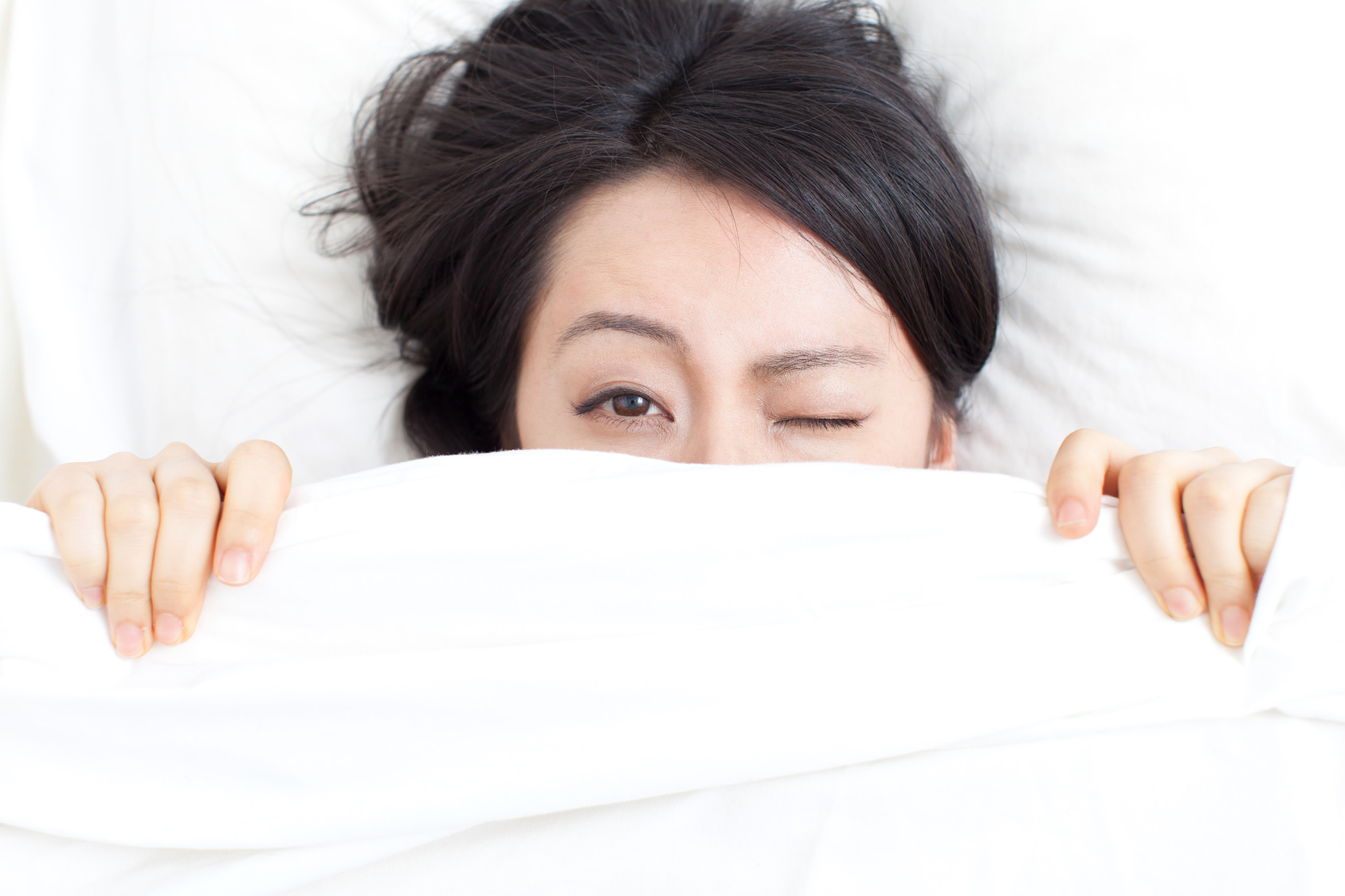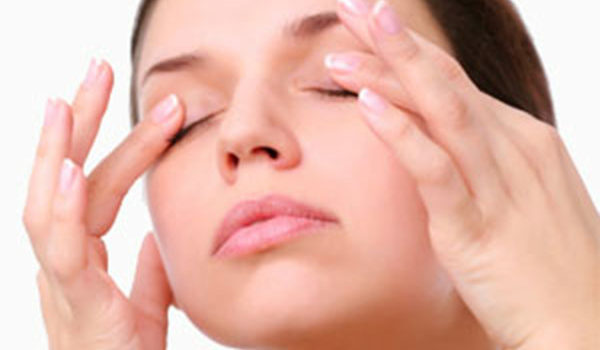
There’s nothing like a morning stretch to start the day, followed by a nice cup of coffee while you read the newspaper or check your social media feeds. But did you know mornings are also the most life threatening time of day? Your heart rate and blood pressure increase as you wake up and you are six times more likely to have a fatal heart attack in the early morning than later in the day. Research shows this increase in morning blood pressure and heart attacks may be related to a spike in stress hormones cortisol, adrenaline, and norepinephrine. Managing your stress level is crucial to lowering your risk factors.
Here are a few of my favorite stress-reducing tips to start your morning right.
1. Apply Eye Pressure 
The vagus nerve is the most important element of the parasympathetic nervous system because it helps calm you down. When you stimulate this nerve, you counteract your sympathetic nervous system, the one that initiates stress and a "fight-or-flight" response. There’s a quick way to lower your blood pressure, decrease your heart rate and relieve anxiety. It’s called the oculocardiac reflex. By applying pressure on your eyeballs, it will alter the function of certain parts of the brain, lower your heart rate and help reduce stress. Because the vagus nerve also goes to the intestines, this technique can stimulate healthy digestion in preparation for your morning breakfast. To chill before you get out of bed, simply apply light pressure to the center of both closed eyes for sixty seconds.
2. Nix that morning “ALARM”
The word “alarm" doesn’t bring images of anything good. Think about it, if someone is “alarmed,” this is a bad feeling. It’s associated with warning alerts of burglary, fire or bad weather. Why would you want to wake up “alarmed” from a sound sleep? This increases your heart rate, blood pressure, and stress hormones. Instead, try using a more gentle approach to start your day like waking up to soft music or sounds of nature. Or use a Light Therapy wake up clock. Light is what woke up our ancestors before the invention of the alarm clock. Melatonin (sleep hormone) production is stimulated by darkness and inhibited by light. The light-sensitive nerve cells in the retina detect light and tell the brain it’s time to wake up. Light therapy wake-up clocks brighten gradually for a smooth transition into your day. There are many other options available including clocks that create gentle chime sounds, sounds of nature, and even produce aromatherapy like citrus, which helps create alertness.
3. Don’t check your phone or tablet 
So many people check their email and social media first thing in the morning to get the latest gossip, news, and family happenings. However, this can cause your stress hormone to increase. Remember, you are coming out of a relaxed sleep and when you immediately bombard your brain with too much stimulus, your body can become stressed. Not to mention, reading the (mostly bad) news first thing in the morning or worse, opening that urgent text message from your boss. The solution? Ignore your phone until you're on your way out the door. Focus on showering, getting dressed, eating breakfast first and your mind will be more alert to dive into the electronics.
4. Take a Deep Breath!

This may sound odd, but people don’t breath enough. The average person breaths shallow which only fills their lungs up to 30% capacity. Taking a couple really deep breaths is the most effective remedy for stress. By increasing oxygen to your lungs, it feeds and invigorates the brain getting it ready for productivity. Taking deep breaths has also been shown to reduce levels of cortisol, your stress hormone, and lowers blood pressure. Before you get up and at 'em, put your hands on your belly. Breathe in all the way through your nose and then let it out through your mouth for another five seconds. Now you are ready to start your stress-free day.
5. Cut back on coffee

Coffee is a major stimulate and can increase your blood pressure, heart rate and stress levels. Caffeine stimulates the release of the two stress hormones, adrenaline, and cortisol. It also increases your heart rate and blood pressure. Talk about “jump starting” your day! Coffee has also been shown to increase anxiety and tension. Rather than start your day with a jolt of java, it’s better to hold off on that first cup of coffee until you get to the office. That way you have allowed your body to wake up naturally and who knows, you may not even need the assistance of caffeine. If you must have a cup of coffee the very first thing in the morning, try decaf.
Starting your day off the right way will improve your mood, increase your energy and help set the tone for higher productivity.
About the Author
Dr. David Friedman is the author of the award-winning, #1 national best-selling book Food Sanity, How to Eat in a World of Fads and Fiction. He's a Doctor of Naturopathy, Chiropractic Neurologist, Clinical Nutritionist, Board Certified Alternative Medical Practitioner, and Board Certified in Integrative Medicine. Dr. Friedman is a syndicated television health expert and host of To Your Good Health Radio, which has changed the face of talk radio by incorporating entertainment, shock value, and solutions to everyday health and wellness issues.
Read more hereFOODSANITY.COM .